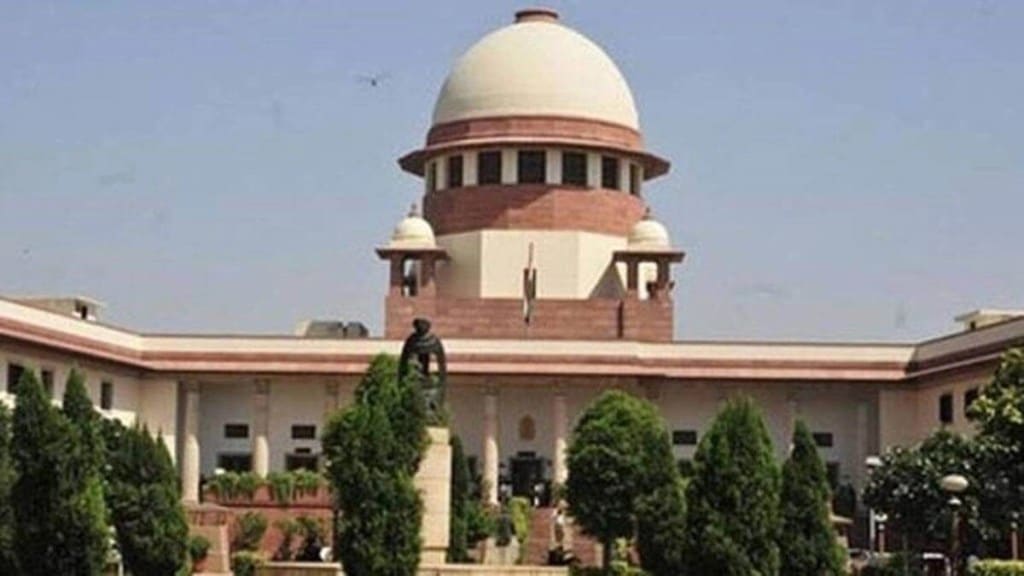A Supreme Court bench of Justices BV Nagarathna and Hima Kohli on Wednesday failed to agree on a plea by Centre to recall its October 9 order that allowed a woman’s request for medical termination of her 26-week-old pregnancy.
While the former favoured it, the latter stated that her conscience does not permit her given medical reports that there is a high chance of survival of the foetus, reports The Indian Express.
In view of the split order the two judges of the bench, which had passed the October 9 order, decided to place the Centre’s application before Chief Justice D Y Chandrachud for being marked to an appropriate bench for adjudication.
On October 9, the bench had allowed abortion. A day later, AIIMS authorities wrote to Additional Solicitor General Aishwarya Bhati – who represented the government in the matter – saying the foetus appeared to be “viable” and had a “strong possibility of survival”.
The doctors said that given this, “we will need a directive from the Supreme Court on whether a feticide (stopping the fetal heart) can be done before termination”. They added that “we perform this procedure for a fetus which has abnormal development, but generally not done in a normal fetus”.
After this, the Centre had moved an application seeking recall of the October 9 order.
Justice Kohli observed the top court had permitted the woman to terminate her pregnancy after considering the October 6 report submitted by a medical board of the All India Institute of Medical Sciences (AIIMS).
During the hearing, the bench took exception to an October 10 e-mail addressed by one of the members of the medical board about the strong possibility of survival of the foetus, and asked which court will say “stop the fetal heartbeat”.
“If the doctor could be so candid in two days short of the earlier report, why was not the (earlier) report more elaborate and more candid?” the bench asked, adding, “Why were they being ambiguous in the earlier report?”.
Justice Kohli added, “Now to say there is a strong possibility of survival and if the court says we will stop the foetal heartbeat. For heaven’s sake, which court will stop the foetal heartbeat? If this was the stand they had to take, they should have said all of it at that point in time, that though there is a financial, physical, mental, emotional thing on the lady, if you keep the child a bit longer, and we persuade her, the option of adoption could have been considered. Because if you remember, the parents did say that if we have no option, we will like to continue with the pregnancy and retain the child with us.”
The court also questioned the Centre why it approached a different bench of the apex court against the order of the another bench, without even filing pleadings.
Justice Nagarathna asked, as quoted by IE, “Tell us, when this court decides a matter, without any pleading whatsoever, how can you move an intra-court appeal before a three-judge bench of this court and then interfere with the order of this court? We do not appreciate this. If the Union of India starts doing this, tomorrow a private party will also start doing it. We are an integral court. Every bench of the Supreme Court is the Supreme Court. We are one court sitting in separate benches. Speaking for myself, I don’t appreciate this on the part of the Union of India. You could have only asked for the constitution of a bench after filing pleadings. Even in the absence of a pleading, you have moved the Hon’ble Chief Justice. How is it possible?”
The bench also interacted with the woman and her husband following the new medical opinion. However, the woman insisted that she didn’t want the child.
The woman that she did not want to postpone the Medical Termination of Pregnancy (MTP). Under the MTP Act, the upper limit for the termination of pregnancy is 24 weeks for married women, special categories including survivors of rape, and other vulnerable women such as the differently-abled and minors.
The woman had earlier moved the apex court seeking its approval to terminate her pregnancy citing medical grounds, including that she was suffering from postpartum depression.

